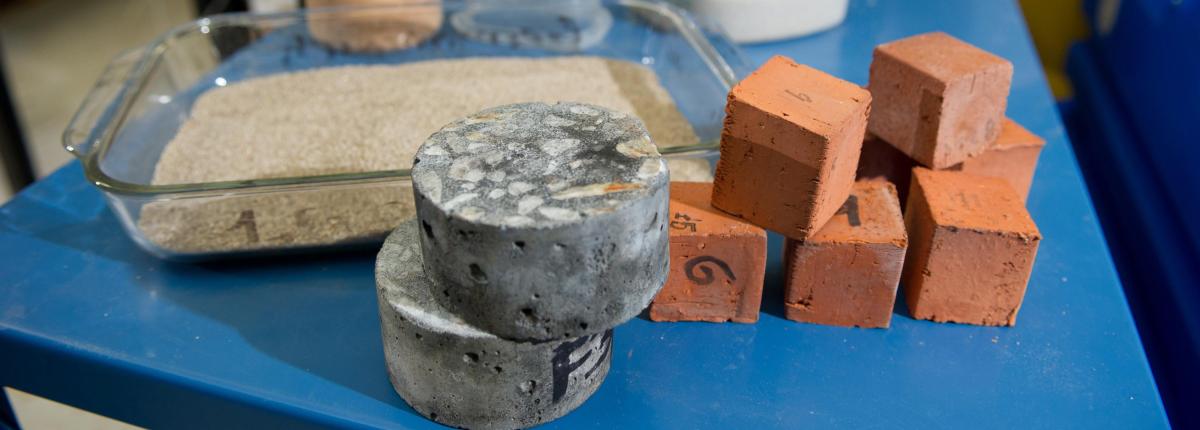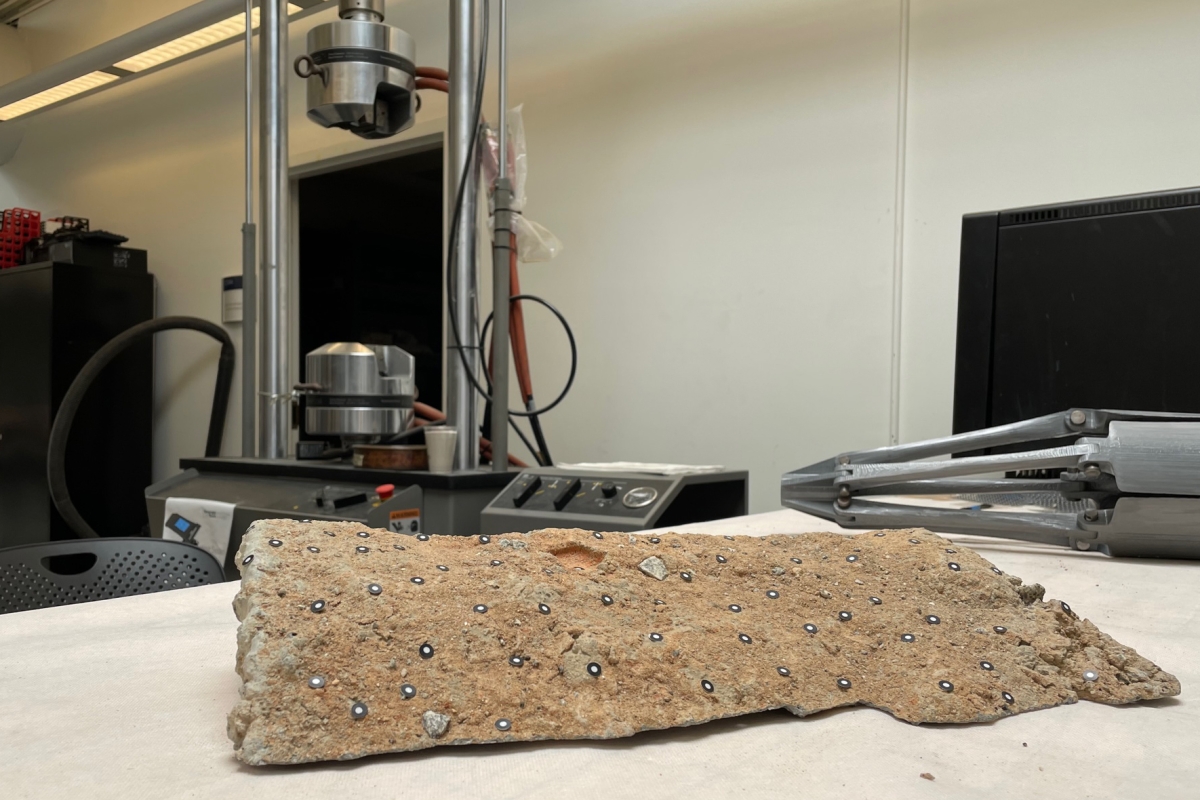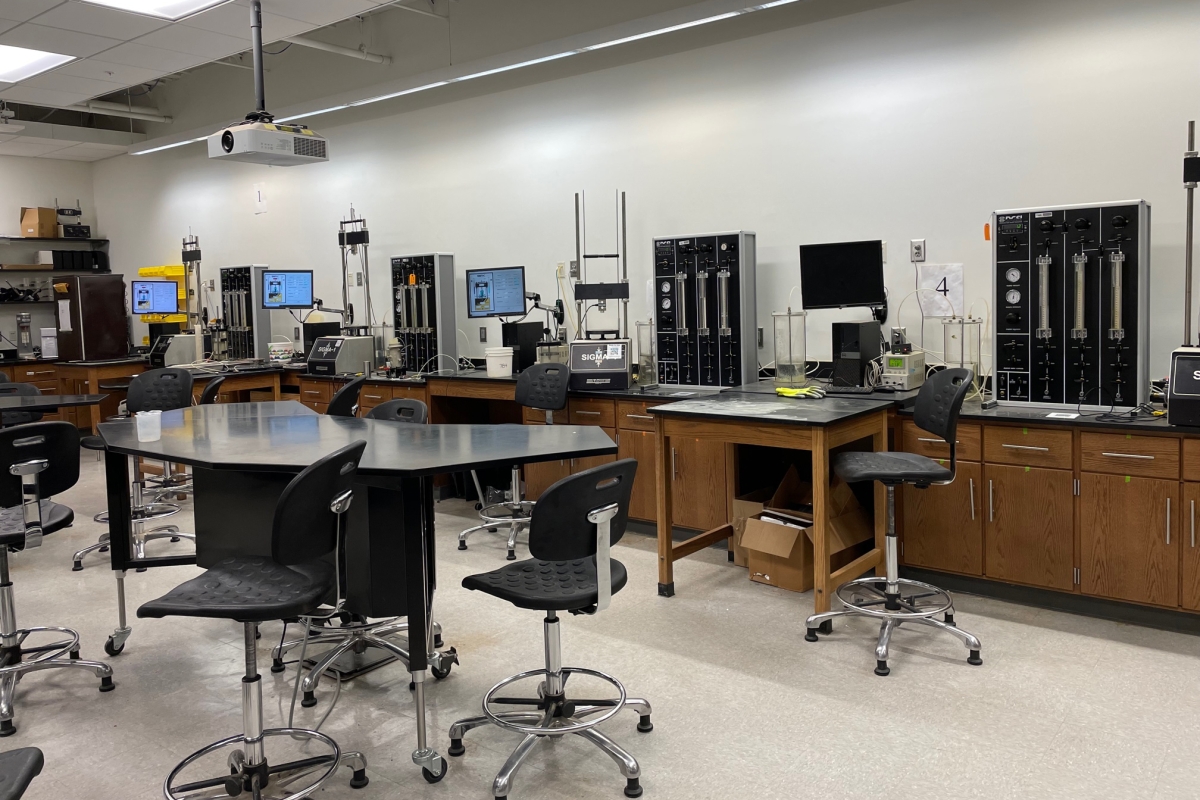
About Geosystems Engineering
Our geosystems engineering program merges geotechnics, geophysics, geomechanics and geology.
We focus on the behavior of natural materials in engineered systems, encompassing traditional and emerging topics within the field — like advanced techniques for site and material characterization; constitutive and micromechanical modeling; natural and man-made hazard mitigation; engineered soils; biotechnology; geotechnical aspects of resource recovery; and foundation design, slope stability, and excavation support.
Our students work with world-class faculty to conduct fundamental and applied research using analytical, numerical, and experimental methods. They also help us teach and participate in a wide range of professional development and social activities coordinated by the Georgia Tech Geotechnical Society.
Focus Your Studies
Students who choose to focus on geosystems engineering will take courses that center around geotechnics and geomechanics. Courses include geotechnical engineering, infrastructure failure analysis, petroleum geomechanics, and international disaster reconnaissance.
Undergraduate students may choose an optional track to focus their electives and gain a deeper understanding of this discipline. There are also opportunities for students to conduct research in this area with faculty and graduate students.
Graduate programs in civil engineering are organized within the affinity groups. Students pursuing a master's degree or PhD affiliate with the Geosystems Engineering group for their educational and research activities. Graduate students work closely with faculty advisors throughout their studies and as they prepare a thesis. Browse the directory at the bottom of the page to get to know the faculty in this group and learn more about their research interests.
There are many opportunities for students to get involved beyond the classroom. Student organizations offer unique ways to learn about the many aspects of civil engineering. In particular, Geosystems engineering students should consider joining the Geotechnical Society.
(text and background only visible when logged in)
Key Research Areas
- Bio-mediated and bio-inspired geotechnics
- Energy geotechnology
- Geotechnical analysis and design
- Natural hazards engineering
- Engineered geomaterials
- Sustainable subsurface engineering
- Rock mechanics and engineering
- Micro-geomechanics
- Subsurface characterization
- Foundation Design
- Earth Retaining structures
- Liquefaction and ground deformation
- Tailings Facilities and earth dams
- Landslides and debris flows
- Petroleum geomechanics
- Energy recovery and waste disposal
- Beneficial reuse of waste materials

Research Centers
Facilities
The Geosystems Engineering instruction and research laboratories occupy more than 900 square meters of custom space within the Mason Building, including:
- Soil Mechanics Instruction Laboratory
- Damage Poromechanics Laboratory
- Geoenvironmental Engineering Laboratory
- Sustainable Geotechnical Systems Laboratory
- In-Situ Research Laboratory
- Rock and Fracture Mechanics Laboratory
- Subsurface Processes Laboratory
- NSF Engineering Research Center for Bio-mediated and Bio-inspired Geotechnics (CBBG)








